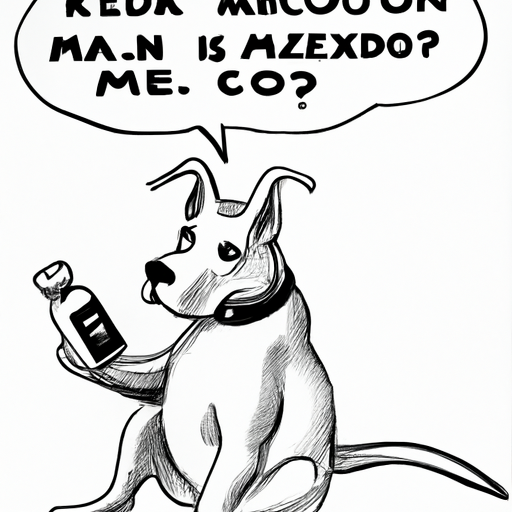As a dedicated caregiver, you always want the best for your charge, especially when they are not feeling their best. When your furry friend is in pain, you would move mountains to help them feel better. You’ve heard about Meloxicam and might be wondering what it is and how it can help your four-legged companion.
1. Understanding Meloxicam
Meloxicam is a nonsteroidal anti-inflammatory drug (NSAID) that veterinarians often prescribe to manage pain and inflammation in dogs. Designed to mimic the body’s natural response to injury, this medication reduces swelling, relieves pain, and improves mobility. You might find it helpful to think of Meloxicam as a sort of ‘super aspirin’ for dogs.
2. When is Meloxicam Used?
Meloxicam is typically used in the management of chronic conditions such as osteoarthritis, which is common in older dogs. Here’s a simple table to help you understand when to use Meloxicam:
| Condition | Use of Meloxicam |
|---|---|
| Osteoarthritis | Yes |
| Post-surgical pain | Yes |
| Acute injury | Yes |
| Fever | No |
Your vet may also prescribe Meloxicam to manage post-surgical pain and other acute injuries.
3. How to Administer Meloxicam
Administering Meloxicam to your dog is straightforward. The drug comes in both liquid and tablet form. Here are some steps for administering the medication:
- Follow your vet’s instructions carefully.
- Never exceed the recommended dosage.
- If using liquid form, make sure to shake the bottle well before use.
- If your dog refuses to take the medicine, try hiding it in their favorite food.
4. The Side Effects of Meloxicam
Like any medication, Meloxicam has potential side effects. These can include:
- Gastrointestinal problems such as vomiting and diarrhea
- Changes in behavior or activity level
- Yellowing of the eyes, gums, or skin (a sign of liver issues)
If you notice any adverse effects, it’s crucial to consult your vet immediately.
5. Alternatives to Meloxicam
While Meloxicam is a commonly prescribed medication, it’s not the only option available. Other NSAIDs, such as Carprofen and Etodolac, can be used. Non-drug therapies like physiotherapy, weight management, and special diets can also help manage chronic pain.
FAQ
Q: Is Meloxicam safe for all dogs?
A: Generally, it’s safe but should not be used in dogs with known hypersensitivity to NSAIDs, or dogs with kidney, liver, or heart disease without careful monitoring.
Q: Can I give my dog human Meloxicam?
A: No, you should never give your dog any medication without consulting your vet first.
Q: How long can my dog stay on Meloxicam?
A: This depends on your dog’s individual health status. Always follow your vet’s advice regarding the duration of the treatment.
Q: What should I do if I miss a dose?
A: If you miss a dose, give it as soon as you remember. If it’s close to the time for the next dose, skip the missed dose and go back to the regular schedule.
Q: Can Meloxicam be used with other medications?
A: Some medications may interact with Meloxicam. Always inform your vet about any other medications your dog is taking.
Remember, you are the first line of defense in your pet’s health. Stay informed, stay vigilant, and always consult with your vet before making any decisions about your dog’s medication.



